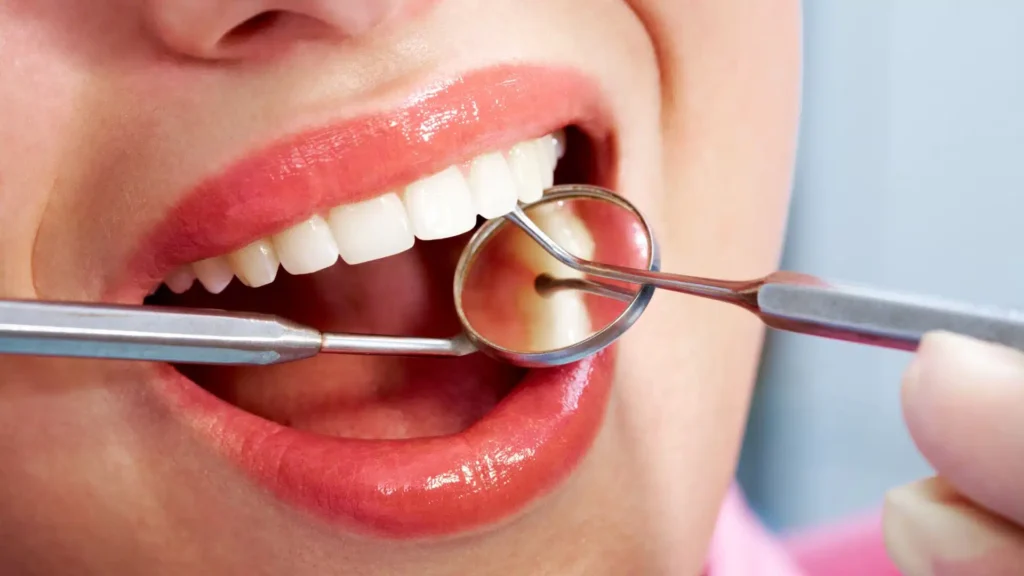
Dental health is a crucial aspect of overall well-being, affecting not only our ability to eat and speak but also our self-confidence and general health. Poor oral hygiene can lead to various dental problems such as cavities, gum disease, and even systemic conditions like heart disease and diabetes. In this comprehensive guide, we will explore the importance of dental care, common oral health issues, preventive measures, professional treatments, and tips for maintaining a healthy smile.
Understanding Dental Health
Dental health refers to the condition of the teeth, gums, and overall oral cavity. It encompasses various aspects, including proper oral hygiene, regular 植牙骨粉 checkups, and maintaining healthy habits. Good dental health ensures that individuals can chew, speak, and smile without discomfort or embarrassment.
The Structure of Teeth
Each tooth consists of several parts:
- Enamel – The hard outer layer that protects the tooth from decay.
- Dentin – The layer beneath the enamel, which is softer and more susceptible to damage.
- Pulp – The innermost part containing nerves and blood vessels.
- Cementum – A bone-like substance covering the tooth root.
- Periodontal Ligament – Connects the tooth to the jawbone and supports its stability.
Understanding the anatomy of teeth is essential for maintaining their health and preventing damage.
Common Dental Problems and Their Causes
Various dental issues arise due to poor oral hygiene, diet, or genetic predisposition. Some common dental problems include:
Tooth Decay (Cavities)
Tooth decay occurs when plaque—a sticky film of bacteria—accumulates on teeth and produces acids that erode enamel. Sugary and acidic foods contribute to cavity formation, making proper brushing and flossing essential.
Gum Disease (Gingivitis and Periodontitis)
Gum disease results from plaque buildup along the gumline, leading to inflammation, bleeding, and, if untreated, bone loss. Gingivitis is the early stage, which can be reversed with proper oral care, while periodontitis is a more severe form that may require professional intervention.
Bad Breath (Halitosis)
Persistent bad breath is often caused by bacteria in the mouth, dry mouth, or underlying dental conditions. Poor oral hygiene and consuming certain foods can exacerbate the issue.
Tooth Sensitivity
Sensitive teeth occur when enamel wears down, exposing the underlying dentin. This can lead to discomfort when consuming hot, cold, or sweet foods and drinks. Causes include aggressive brushing, gum recession, or acidic foods.
Tooth Loss
Tooth loss can result from severe decay, gum disease, or trauma. It affects speech, chewing ability, and overall confidence. Preventive care and prompt treatment can help avoid tooth loss.
Oral Cancer
Oral cancer affects the lips, tongue, cheeks, and throat. Risk factors include tobacco and alcohol use, human papillomavirus (HPV), and excessive sun exposure. Early detection through regular dental checkups is crucial for successful treatment.
The Importance of Preventive Dental Care
Preventive care is essential for avoiding dental issues and maintaining oral health. Adopting good oral hygiene habits and scheduling regular dental visits can prevent common dental problems.
Brushing and Flossing
Brushing twice a day with fluoride toothpaste and flossing daily help remove plaque and prevent cavities and gum disease. Using a soft-bristled toothbrush and replacing it every three months is recommended.
Healthy Diet for Strong Teeth
A balanced diet plays a significant role in dental health. Nutrient-rich foods, such as dairy products, leafy greens, and nuts, help strengthen teeth. Avoiding excessive sugar and acidic foods can prevent enamel erosion.
Regular Dental Checkups
Visiting the dentist at least twice a year allows early detection of dental issues. Professional cleanings remove plaque and tartar buildup that brushing alone cannot eliminate.
Fluoride and Sealants
Fluoride strengthens enamel and helps prevent cavities. It is found in toothpaste, drinking water, and professional treatments. Dental sealants provide an extra layer of protection, especially for children’s molars.
Avoiding Harmful Habits
Tobacco use, excessive alcohol consumption, and nail-biting can damage teeth and gums. Quitting smoking and limiting alcohol intake significantly improve oral and overall health.
Professional Dental Treatments
When dental issues arise, professional treatments help restore oral health. Some common dental procedures include:
Dental Fillings
Used to treat cavities, fillings restore tooth structure and prevent further decay. Materials include composite resin, amalgam, and porcelain.
Root Canal Therapy
A root canal is performed when the pulp becomes infected. The procedure involves removing the infected tissue, cleaning the canal, and sealing the tooth to prevent reinfection.
Tooth Extraction
Severely damaged or impacted teeth may require extraction. Wisdom teeth removal is a common procedure to prevent crowding or pain.
Orthodontic Treatments
Braces and clear aligners correct misaligned teeth and improve bite function. Orthodontic treatment enhances both aesthetics and oral health.
Dental Implants and Bridges
Dental implants and bridges replace missing teeth, restoring functionality and appearance. Implants are a permanent solution, while bridges rely on adjacent teeth for support.
Teeth Whitening
Professional teeth whitening removes stains and brightens the smile. While over-the-counter products exist, professional treatments provide safer and more effective results.
Tips for Maintaining a Healthy Smile
To ensure lifelong oral health, follow these essential tips:
- Brush and floss daily to remove plaque and bacteria.
- Use fluoride toothpaste to strengthen enamel.
- Eat a balanced diet with limited sugar and acidic foods.
- Stay hydrated to promote saliva production and wash away food particles.
- Visit the dentist regularly for checkups and cleanings.
- Avoid smoking and excessive alcohol consumption.
- Wear a mouthguard during sports to protect teeth from injury.
Conclusion
Dental health is a vital component of overall well-being, affecting both physical health and self-confidence. By practicing good oral hygiene, eating a healthy diet, and seeking professional care when needed, individuals can prevent dental issues and maintain a beautiful, healthy smile. Investing in dental care today leads to a lifetime of benefits, ensuring strong teeth and gums for years to come.